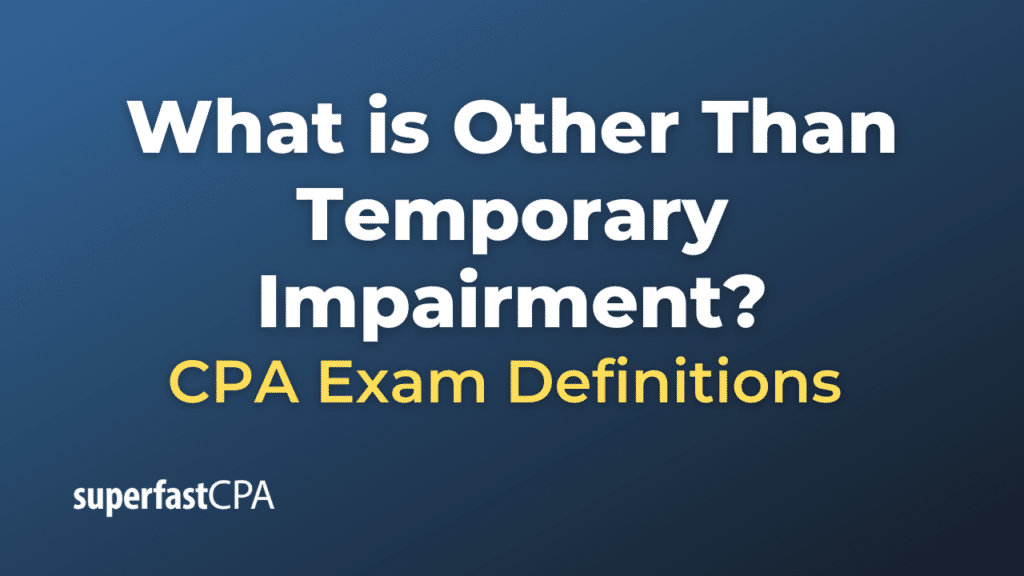Other Than Temporary Impairment
Other Than Temporary Impairment (OTTI) is a term used in accounting to refer to the condition where the value of an investment or asset has decreased in value and is expected to not recover or regain its value in the near future. It is more severe than a temporary dip in value, indicating a fundamental issue with the asset that will prevent it from bouncing back to its original value.
For example, if a company has investments in stocks and the market price of a certain stock decreases, it may be considered a temporary impairment if the price decrease is expected to be short-lived. However, if the stock belongs to a company that has filed for bankruptcy or has other serious operational issues, and the stock’s value is not expected to recover, this may be considered an other than temporary impairment.
When an OTTI is identified, the company must write down the value of the asset on its balance sheet to reflect the lower market value, and the amount of the write-down is reported as a loss on the income statement.
These write-downs are significant because they not only reduce the value of the company’s assets, but they also reduce the company’s earnings in the period the impairment is recognized.
Remember that the specific criteria for recognizing an OTTI can vary based on the type of asset and the accounting standards used, such as U.S. Generally Accepted Accounting Principles (U.S. GAAP) or International Financial Reporting Standards (IFRS).
Example of Other Than Temporary Impairment
Let’s consider a hypothetical company, TechStart Corp, which invested $1,000,000 in the stocks of another company, FutureNet Inc. However, FutureNet Inc. has recently filed for bankruptcy due to mismanagement and a series of poor strategic decisions, and its stocks’ market value has plummeted.
TechStart Corp. assesses the situation and determines that the decrease in FutureNet Inc.’s stock value is not temporary due to the bankruptcy filing and the lack of potential for recovery in the foreseeable future. Thus, TechStart Corp. identifies an Other Than Temporary Impairment (OTTI).
Here’s how it affects TechStart Corp’s financial statements:
- Balance Sheet: The investment in FutureNet Inc. is written down to its fair market value. If FutureNet Inc.’s stock is now worth $200,000, TechStart Corp. will write down the value of the investment from $1,000,000 to $200,000 on its balance sheet.
- Income Statement: The loss from the write-down, which in this case is $1,000,000 (original cost) – $200,000 (new fair value) = $800,000, is reported on the income statement as an impairment loss.
It’s important to note that identifying and recognizing OTTI requires judgement and is subject to the specific rules of the relevant accounting standards (e.g., U.S. GAAP, IFRS), including assessments of the cause, duration, and potential for recovery of the decrease in value. In this case, TechStart Corp. decided that the impairment was other than temporary due to FutureNet Inc.’s bankruptcy and the low likelihood of recovery in stock value.














